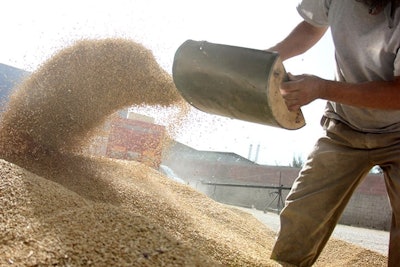
Earlier this month, the Hemp Feed Coalition formally submitted an application to federal regulators with the goal of bringing hemp seed cake and meal into the animal feed market.
Hemp seed cake is a high-protein byproduct of hemp grain processing for oil. Researchers have made the connection between its nutritional properties and the particular needs of animals raised for agricultural purposes.
But, for now, hemp remains off-limits as an FDA-approved ingredient in animal feed. That’s where the Hemp Feed Coalition comes in. The group formed out of the Colorado Hemp Industries Association in 2018 with the intent to focus singularly on the animal feed issue; it formed into its own nonprofit last year.
RELATED: Hemp’s Potential in the Animal Feed Market
The application is now in the hands of both the Association of American Feed Control Officials and the U.S. Food and Drug Administration’s Center for Veterinary Medicine (FDA-CVM).
“Led by Coalition leadership, hemp and feed industry experts and researchers, the submission is a culmination of a two-year long effort, consisting of an ingredient investigation of hemp seed cake and meal and a clinical trial to demonstrate the safety and efficacy of hemp for laying hens,” according to the Hemp Feed Coalition.
The goal, broadly speaking, is to open up a new commodity segment of the burgeoning industrial hemp market. While farmers around the U.S. are weighing the pros and cons of the crop’s inclusion in a rotation, the market infrastructure in various segments (cannabinoid extraction, fiber production, grain production) is in uneven states of completion. Formal approval from the FDA could vastly expand the opportunities for farmers to enter the hemp space.
“The first [application] is always the hardest; and it was definitely a group effort to submit the first ever application in the U.S. for hemp as an official feed ingredient,” Hemp Feed Coalition Executive Director Hunter Buffington said in a public statement.

























